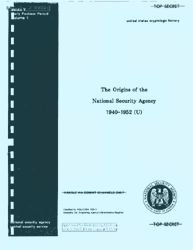Archaeologists’ concern with the ethics of their profession is evident in the codes of ethics that have been formulated and revised by their professional societies and in their adherence to international and local standards regarding the treatment of cultural property.
The effort involved in formulating codes of ethics requires intense reflection on general principles of ethics and careful consideration of how these principles can be applied. Archaeologists are committed to acquiring and disseminating knowledge and preserving archaeological resources so that they can continue to be used by future generations for acquiring knowledge. These separate goals can conflict with one another, especially when the use of improperly acquired (looted) material would significantly increase our knowledge of the past. On the one hand, some argue that in this sort of case, the increase in knowledge trumps the conservation principle (e. g., the looted material is already in a private collection; no further damage to the site from which it came occurs). In other words, more good (i. e., total knowledge) will result from the act of publishing the work than from the act of not publishing. An ‘act-utilitarian’ ethical principle underlies this reasoning, namely ‘‘Act in such a way as to increase the total amount of good in the world.’’ On the other hand, the conservationists adopt a ‘rule-utilitarian’ stance: greater good will result from following the ‘rule’ of not using looted material than from allowing special exceptions because the no-exception policy discourages future looting and ultimately results in the greater good of more knowledge. Both appeal to an ethical principle that examines the ‘consequences’ of action, but one judges each particular individual act and the other looks at the consequences of following a rule of behavior. Most ethicists regard act-utilitarianism as an untenable theory because of its apparent arbitrariness. Rule-utilitarianism shows more promise, but coming up with a set of rules that are complete and compatible is highly problematic as well, and no ethical theory can be general enough and precise enough to cover every possible action.
Further ethical issues arise because archaeologists typically investigate material cultures that are not part of their own heritage and conduct their surveys and excavations on land that does not belong to them. The fundamental ethical principle they follow here is one that appeals to the justice or fairness of behavior rather than to its consequences. Although it is a matter of some serious dispute, most archaeologists agree that the rights of others must be respected even when doing so may result in a loss or decrease of archaeological knowledge. Disagreements still arise among those whose rights compete and among-those who doubt that some groups’ rights are violated by the pursuit of archaeological knowledge. These disputes are apt to be settled more fairly when representatives of the affected groups negotiate with one another, and many archaeologists have been party to such negotiations. Working out the details of what is just and fair in individual cases can be a very difficult and delicate task even when the principles are clear. Moreover, in many instances, particularly when government regulations are involved, the principles themselves can be opaque. In some exemplary cases, archaeologists who manage major museums that acquired those collections in times less sensitive to issues of cultural patrimony have been able to work out agreements in which the cultural heirs own the property and can use it when it is needed, while the museum agrees to care for it and display it in accord with conditions set out by the heirs. In these agreements, fairness is preserved and everyone benefits. Archaeologists’ sensitivity to the issues of cultural patrimony and abuses under colonialism reflects their anthropological training. Their continuing attempts to solve the difficult problems by focusing on ethical issues in their publications and meetings have created a climate of professionalism with very high ethical standards.
See also: Ethical Issues and Responsibilities; Explanation in Archaeology, Overview; Goals of Archaeology, Overview; Postprocessual Archaeology; Processual Archaeology.




 World History
World History









